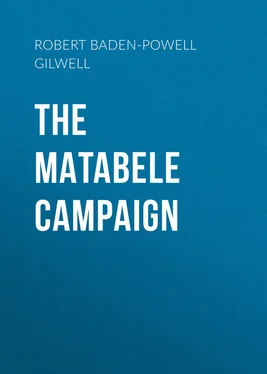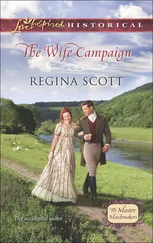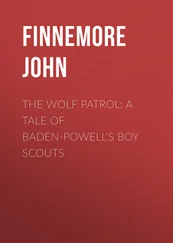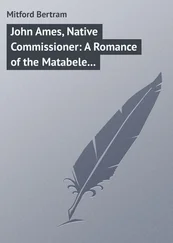Robert Baden-Powell of Gilwell - The Matabele Campaign
Здесь есть возможность читать онлайн «Robert Baden-Powell of Gilwell - The Matabele Campaign» — ознакомительный отрывок электронной книги совершенно бесплатно, а после прочтения отрывка купить полную версию. В некоторых случаях можно слушать аудио, скачать через торрент в формате fb2 и присутствует краткое содержание. Жанр: foreign_antique, foreign_prose, на английском языке. Описание произведения, (предисловие) а так же отзывы посетителей доступны на портале библиотеки ЛибКат.
- Название:The Matabele Campaign
- Автор:
- Жанр:
- Год:неизвестен
- ISBN:нет данных
- Рейтинг книги:5 / 5. Голосов: 1
-
Избранное:Добавить в избранное
- Отзывы:
-
Ваша оценка:
- 100
- 1
- 2
- 3
- 4
- 5
The Matabele Campaign: краткое содержание, описание и аннотация
Предлагаем к чтению аннотацию, описание, краткое содержание или предисловие (зависит от того, что написал сам автор книги «The Matabele Campaign»). Если вы не нашли необходимую информацию о книге — напишите в комментариях, мы постараемся отыскать её.
The Matabele Campaign — читать онлайн ознакомительный отрывок
Ниже представлен текст книги, разбитый по страницам. Система сохранения места последней прочитанной страницы, позволяет с удобством читать онлайн бесплатно книгу «The Matabele Campaign», без необходимости каждый раз заново искать на чём Вы остановились. Поставьте закладку, и сможете в любой момент перейти на страницу, на которой закончили чтение.
Интервал:
Закладка:
“If the loudly expressed wishes of the unfortunate wight who had to walk and carry a heavy rifle from Wilson’s to Buluwayo under a hot sun, have any effect on the official who was responsible for sending horses barely strong enough to move their own shadows on a duty in the course of which speed might have been necessary to save their riders’ lives, he will some day find himself on a weak horse as per sample supplied to us, and a score of Matabeles with sharp assegais and a taste for fancy experiments in the torture line after him, with the certainty that he will have to get off and try his individual sprinting powers before reaching a place of safety. Not that there could be the least spice of danger between here and Wilson’s, but that the official who would allow horses which to the most unversed eye are only fit for the sick lines to leave the stable at all, would just as readily send the same variety of mounts on hazardous service.”
5th June. – Colonel Plumer’s column, 460 strong, moved off to the country of the Guai River, north–west of Buluwayo.
And Macfarlane’s column of 400 went away to the north.
Spreckley’s column was to make its start next day, but the unexpected happened to prevent it.
At ten o’clock at night, just as Sir Frederick was thinking we had done enough office work for the day, Sir Charles Metcalfe and the American scout Burnham rode up and came into the office, looking a bit dishevelled and torn. They had been riding out in the evening to visit Colonel Beal’s column from Salisbury, which was camped about three miles out of the town. Seeing fires close to the road, and near to where they thought the camp must be, they had ridden up to them, and found themselves in the camp of a large impi of the enemy! They only escaped by making their way home by a détour through the bush. The news seemed almost too improbable to be true, and yet the bearers of it were not men to get excited and bring in a false report.
So I telephoned to a piquet we had at Government House (about two miles out of town) to send a patrol to investigate. But the subsequent reports were not wholly satisfactory, and I roused up Spreckley in the middle of the night to show me the way, and we rather upset the sleep of the inhabitants of Government House by appearing there to make further inquiries at about three in the morning. Nothing satisfactory to be learned there; so back to Buluwayo, and, getting a fresh horse and a police–trooper as guide, I went out again towards Beal’s camp.
There, in the early dawn, I was at last able to see the enemy clearly enough. On the opposite bank of the Umgusa River they were camped in long lines, fires burning merrily, and parties of them going to and from the stream for water. I took my information on to Beal’s camp. I was much taken with the coolness with which the news was received there. It was not above two miles and a half from that of the enemy. The men were ordered to get their breakfasts without delay, and a patrol of a sergeant and two men was sent out to the stream to see if there were good water there, and also (apparently as an after–thought) whether they, too, could see any enemy there. Before we had finished breakfast they returned.
“Well, is it all right? Is there water there?”
“Yes.”
“Is it good water?”
“I couldn’t tell.”
“Why not?”
“Because the Matabele were there, and wouldn’t let us come near.”
So we saddled up and moved off towards the spot to await the arrival of more troops from Buluwayo, for I had sent my police–trooper back with a note to tell them there that “it was good enough,” and asking that Spreckley’s mounted column should be sent out to join us. Presently they came up, followed by a few volunteers in carts who wanted to join in the fun.
Our strength was 250 mounted men, with two guns and an ambulance.
The country was undulating veldt covered with brush, through which a line of mounted men could move at open files.
As we advanced, we formed into line, with both flanks thrown well forward – especially the right flank under Beal, which was to work round in rear of the enemy on to their line of retreat – a duty which was most successfully carried out.
The central part of the line then advanced at a trot straight for the enemy’s position.
The enemy were about 1200 strong, we afterwards found out. They did not seem very excited at our advance, but all stood looking as we crossed the Umgusa stream, but as we began to breast the slope on their side of it, and on which their camp lay, they became exceedingly lively, and were soon running like ants to take post in good positions at the edge of a long belt of thicker bush. We afterwards found that their apathy at first was due to a message from the M’limo, who had instructed them to approach Buluwayo and to draw out the garrison, and to get us to cross the Umgusa, because he (the M’limo) would then cause the stream to open and swallow up every man of us. After which the impi would have nothing to do but walk into Buluwayo and cut up the women and children at their leisure. But something had gone wrong with the M’limo’s machinery, and we crossed the stream without any contretemps. So, as we got nearer to the swarm of black heads among the grass and bushes, their rifles began to pop and their bullets to flit past with a weird little “phit,” “phit,” or a jet of dust and a shrill “wh–e–e–e–w” where they ricocheted off the ground.
Some of our men, accustomed to mounted infantry work, were now for jumping off to return the fire, but the order was given: “No; make a cavalry fight of it. Forward! Gallop!”
Then, as we came up close, the niggers let us have an irregular, rackety volley, and in another moment we were among them. They did not wait, but one and all they turned to fly, dodging in among the bushes, loading as they ran. And we were close upon their heels, zigzagging through the thorns, jumping off now and then, or pulling up, to fire a shot (we had not a sword among us, worse luck!), and on again.
The men that I was with – Grey’s Scouts – never seemed to miss a shot.
The Matabele as they ran kept stopping behind bushes to fire. Now and again they tried to rally, but whenever a clump of them began to form or tried to stand, we went at them with a whoop and a yell, and both spurs in, and sent them flying. Of course, besides their guns they had their assegais. Several of our horses got some wounds, and one man got a horrid stab straight into his stomach. I saw another of our men fling himself on to a Kafir who was stabbing at him; together they rolled on the ground, and in a twinkling the white man had twisted the spear from its owner’s hand, and after a short, sharp tussle, he drove it through the other’s heart.
In one place one of the men got somewhat detached from the rest, and came on a bunch of eight of the enemy. These fired on him and killed his horse, but he himself was up in a trice, and, using magazine fire, he let them have it with such effect that before they could close on him with their clubs and assegais, he had floored half their number, and the rest just turned and fled.
And farther on a horse was shot, and, in the fall, his rider stunned. The niggers came louping up, grinning at the anticipated bloodshed, but Sergeant Farley, of Grey’s Scouts, was there before them, and hoisting up his comrade on to his horse, got him safe away.
Everywhere one found the Kafirs creeping into bushes, where they lay low till some of us came by, and then they loosed off their guns at us after we had passed.
I had my Colt’s repeater with me – with only six cartridges in the magazine, and soon I found I had finished these – so, throwing it under a peculiar tree, where I might find it again, I went on with my revolver. Presently I came on an open stretch of ground, and about eighty yards before me was a Kafir with a Martini–Henry. He saw me, and dropped on one knee and drew a steady bead on me. I felt so indignant at this that I rode at him as hard as I could go, calling him every name under the sun; he aimed, – for an hour, it seemed to me, – and it was quite a relief when at last he fired, at about ten yards distance, and still more of a relief when I realised he had clean missed me. Then he jumped up and turned to run, but he had not gone two paces when he cringed as if some one had slapped him hard on the back, then his head dropped and his heels flew up, and he fell smack on his face, shot by one of our men behind me.
Читать дальшеИнтервал:
Закладка:
Похожие книги на «The Matabele Campaign»
Представляем Вашему вниманию похожие книги на «The Matabele Campaign» списком для выбора. Мы отобрали схожую по названию и смыслу литературу в надежде предоставить читателям больше вариантов отыскать новые, интересные, ещё непрочитанные произведения.
Обсуждение, отзывы о книге «The Matabele Campaign» и просто собственные мнения читателей. Оставьте ваши комментарии, напишите, что Вы думаете о произведении, его смысле или главных героях. Укажите что конкретно понравилось, а что нет, и почему Вы так считаете.












